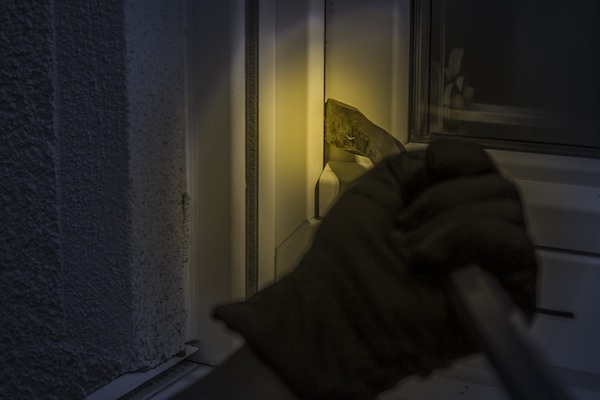Having an intruder alarm system is one of the most effective ways to prevent an intruder from entering your home. Often the mere presence of an alarm is enough to deter a potential burglar. Unfortunately, however, no alarm is 100% failsafe, and some burglars are adept at exploiting their vulnerabilities.
In this blog, we outline the common ways burglars can defeat alarm systems and provide tips on preventing these weaknesses so you can protect your home.
How do burglars overcome an intruder alarm system?
Power outages
All insurance approved wired home security systems should connect to the main power supply. So, in a power outage, the alarm becomes vulnerable. Even though most alarms come with a backup battery, they’re not entirely failsafe. Firstly, the duration of a fresh battery is generally only 8-24 hours depending on the age and quality of the battery, leaving your home vulnerable after an extended power outage. Secondly, homeowners often forget to test or exchange their backup batteries, so they might not activate when needed.
Tip: Have your system regularly tested by an approved installer. Also, consider updating your system for one with a larger battery standby time
Exploiting weak spots
Improper alarm installation or poor maintenance are a burglar’s dream. Incorrect or insufficient placement of sensors provides plenty of opportunities for intruders to bypass the alarm system and gain entry. It’s tempting to keep sensors to a minimum to reduce the installation costs but not covering all vulnerable areas is risky.
Tip: Hire a professional to install your alarm system and keep up to date with regular servicing.
Cracking codes
Security alarms that use a code to activate and deactivate come with default codes. Failing to change the codes, changing them to easy to guess alternatives (e.g., your birthdate) or giving them out to others is a significant security risk.
If a burglar can easily access or guess your code, the system becomes useless.
Tip: Change from the default code as soon as your system is successfully installed, and don’t use an easy-to-guess code. Only give out codes to trusted individuals and change your master code after any repairs or service. There are also ‘proximity’ keyfobs available for most modern systems meaning you can give temporary access to a tradesperson without having to reveal your code. The keyfob can be returned by the tradesperson once they have finished.
Exploiting police response times
The police response time to an alarm activation varies depending on the house’s location and record of false alarms. Before targeting a property, a savvy burglar will identify the average response time to exploit it to their advantage. So, even after the alarm sounds, the intruder may still carry out a burglary before leaving the property.
Tip: Prevent false alarms with regular maintenance and install a police monitored alarm system for a more immediate response.
Cutting off the alarm
An alarm system that depends on a landline connection to communicate between the alarm and the emergency responders can be easily deactivated by cutting the phone line.
Tip: Install a burglar alarm that doesn’t require a landline connection, a GSM / 4G connection is available for all modern panels
If you’re concerned about the effectiveness of your home alarm security system and would like a professional review, please get in touch. You can call us on 01392 368830 or complete our contact form.

